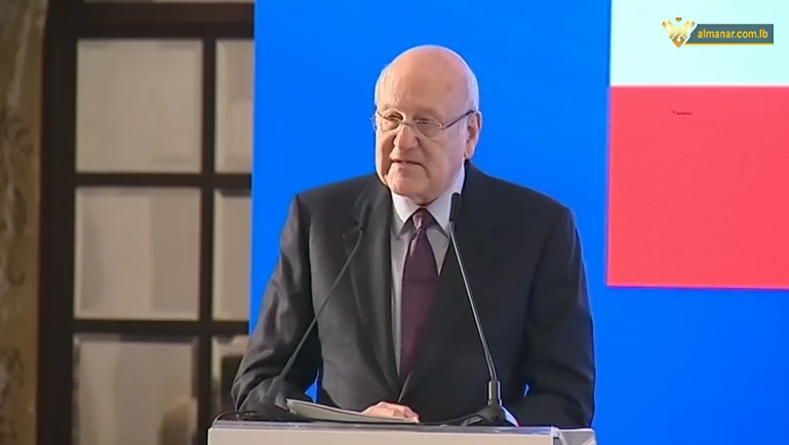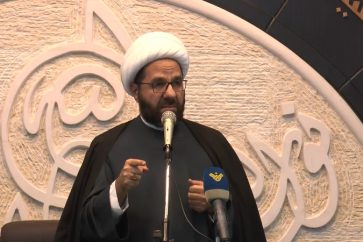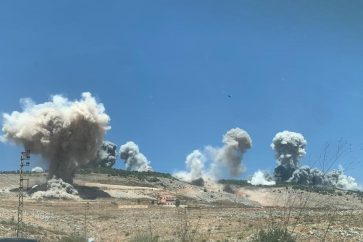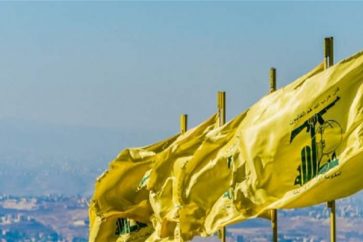Lebanese caretaker prime minister Najib Mikati confirmed Thursday that the world is now going through an era characterized by fundamental challenges, starting from the impact of climate changes, all the way to emerging international conflicts, especially the Russian-Ukrainian war and its effects on energy prices and others.
Addressing the opening of the Arab Economic Forum, which is titled: “Lebanon: The Road to Oil”, Mikati noted that the Arab economy continues to recover this year, for the second year in a row, as the International Monetary Fund is estimated to record real growth of 5 percent in 2022, noting that it is the second largest regional growth in the world.
Mikati added that Lebanon, despite the ongoing macro-economic pressures and financial imbalances, in light of growing political tension, the economy has returned to register this year a growth of nearly 2 percent in actual terms, after the noticeable net contraction it has witnessed since the beginning of the crisis. The import growth of 44 percent in the first eleven months of this year is due to the improvement in domestic economic activity, in light of the increase in domestic demand.
The Lebanese caretaker prime minister pointed out that the Lebanese private sector is still operating significantly below its productive capacity, looking forward to stabilizing the general political situation and bypassing the constitutional requirements, in order to restore the confidence factor, reach consensus on the reform agenda and conclude a final agreement with the International Monetary Fund, in order to return the country to the desired path of growth, and contain the enormous pressures that Lebanese families are still facing to this day.
Mikati pointed out that the public sector is still under a massive crisis, as the total budget does not exceed one billion dollars, in cash dollars, compared to approximately USD 17 billion in the 2019 budget, which limits the available resources for infrastructure, operational and investment expenditures.
He added that Lebanon has completed the agreement to demarcate the maritime borders in the south, and has launched the exploration process in Block No. 9, and the companies in charge of that will drill an exploratory well in the year 2023, believing that if the results of the exploration are positive, the confidence factor in the markets will be strengthened.
He noted that gas exploration will generate significant economic gains for Lebanon, first by attracting foreign investment, and second by boosting state revenues if the hydrocarbon resources are marketable.
He stressed that the Lebanese government is working hard to give priority to the energy sector in Lebanon, given that this sector has a direct impact on the national economy, expressing his hope that the forum will be held next year under the title “Lebanon is an oil country”.
Mikati meanwhile called on all political officials in his country to rise above narrow interests, uphold the public interest and strengthen common denominators.
Mikati, on Thursday received at the Grand Serail, the Secretary-General of the Arab League, Dr. Ahmed Aboul Gheit, in the presence of Assistant Secretary General of the Arab League, Ambassador Hossam Zaki, the Secretary-General of Council of Ministers Judge Mahmoud Makiya, and Premier Mikat’s Advisor Ambassador Boutros Asaker.
During the meeting, Premier Mikati appreciated Aboul Gheit’s continuous support for Lebanon and the efforts by the Arab League to strengthen the Arab-Arab relations, especially the Lebanese-Arab relations. Mikati also hailed Aboul Gheit’s keenness on Lebanon and his speech delivered today at the Economic and Business Forum, in which he stressed that Lebanon can not withstand a long-term presidential vacancy, and called for the adoption of legislations that preserve Lebanon and protect its wealth.
Following the meeting, Aboul Gheit said: “I had the honor to meet Premier Mikati in the context of my participation in the economic conference held this morning at the Phoenicia Hotel to restore the vitality of the Lebanese economy. Lebanon is going through a difficult and complicated political and economic situation, but getting out of it is possible and the capabilities exist to achieve this, as I have said in my speech this morning at the conference.”
Source: Agencies




